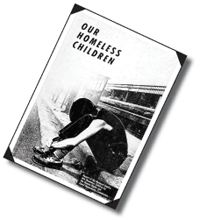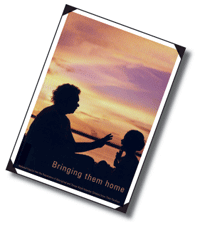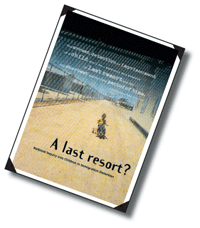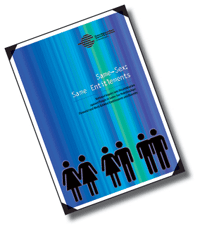Human Rights 21: Going to the heart of the matter: national inquiries
Going to the heart of the matter: national inquiries
In today's world, with an increasing focus on greed and building individual wealth, advocacy for the human rights agenda couldn’t be more important. Over the years, HREOC has produced outstanding reports, like Bringing them home, with important recommendations. To fail to act on those recommendations diminishes Australia as a nation, and all of us as individuals.
Professor Fiona Stanley AC - Executive Director, Australian Research Alliance for Children and Youth.
Right from the start, public inquiries have been one of HREOC’s most effective strategies for investigating and drawing attention to the pressing human rights issues facing the country.
They are especially important to address discrimination and human rights violations where there is little or no legal protection.
An essential part of the inquiry process is hearing from people directly affected by the issues.
Inquiry recommendations seek to help governments uphold obligations under international human rights standards and create positive systemic change.
Following are a selection of some of the national inquiries HREOC has conducted over the past 21 years.
Our Homeless Children: National Inquiry into Homeless Children (1989)
Inquiry participant

Our Homeless Children, the report of HREOC’s first national inquiry, shocked the country with its estimate that up to 25,000 young Australians were homeless, including around 9,000 aged between 12 and 15.
The inquiry found that these young people were often abused and exploited; unable to complete their education or find work. Many turned to crime or prostitution to survive, and many suffered mental health problems.
The report recommended changes in areas such as income support, accommodation, health and education. It also stressed the need for greater coordination of services at a Commonwealth, state and local level.
Widespread public awareness put the issue high on the public agenda and the federal Government committed $100 million over four years for improved accommodation and services.
National Inquiry into Racist Violence (1991)
Inquiry participant

The inquiry was established in 1988 following a series of well organised attacks against church and community leaders, as well as complaints from Indigenous people and ethnic community groups.
Despite intimidation and the fear of retaliation, almost 1,000 people came forward to give evidence.
The inquiry found racist violence against Indigenous Australians was endemic, nation-wide and severe, with racist attitudes and practices ingrained in many institutions. Racist violence on the basis of ethnicity, while not as extreme as in other countries, was also a serious concern.
A key recommendation of the Inquiry’s report was the need for legal protection against racial hatred. In 1995 the Racial Discrimination Act was amended to make racial vilification against the law.
National Inquiry into the Human Rights of People with Mental Illness (1993)
Inquiry participant

The landmark inquiry found that many thousands of people affected by mental illness suffered systemic discrimination and were consistently denied the rights and services to which they were entitled.
Health and community services, established to support people with a mental illness who live in the general community, were found to be seriously underfunded or simply not available.
The inquiry helped change perceptions of mental illness. It also meant issues facing people with a mental illness were seen from a ‘human rights’ – rather than only a ‘medical’ – perspective.
The recommendations from the Inquiry’s report helped deliver better funding, laws, policies and programs, along with the establishment of the National Mental Health Strategy.
Bringing Them Home: National Inquiry into the Separation of Aboriginal and Torres Strait Islander Children from their Families (1997)
Inquiry participant

Bringing them home told the stories of Indigenous families and communities devastated by government policies which allowed Indigenous children to be taken from their families.
The report estimated that between one in three and one in 10 Indigenous children in Australia were forcibly removed from their families between 1910 and 1970.
It found that separation had affected every Indigenous community, damaging people’s self-worth, their connection to culture and land and their ability as parents. In turn, next generations have suffered.
Bringing them home made recommendations on counselling and health services, family tracing and reunion programs and education. It also recommended compensation and a national apology to those affected by separation.
The report helped build understanding about this part of Australian history and its ongoing impact on Indigenous people. In just four months after the report’s release more than one million people around the country had signed ‘sorry books’.
In 1997 the federal Government announced a package of $63 million over four years to address issues raised in the report, with an additional $54 million provided in 2002.
A last resort? NationalInquiry into Children in Immigration Detention (2004)
Inquiry participant

From 1999 the number of asylum seeker children placed in Australian immigration detention rose alarmingly. Over 2,000 children were held in detention between 1999 and 2002 and there was widespread concern about the treatment they were receiving and the effects of the detention.
The inquiry found that Australia’s immigration detention policy jeopardised the mental health of children and failed to provide adequate health care, education and protection for vulnerable children.
The inquiry’s report found that detention was not a measure of ‘last resort’ or for the ‘shortest appropriate period of time’, as required under the Convention on the Rights of the Child.
Shortly after the report’s release, and following consistent action by NGOs to bring the issue to public attention, the federal Government took steps to remove the remaining children from immigration detention centres.
Same-Sex: Same Entitlements: National Inquiry into Discrimination Against People in Same-Sex Relationships (2007)
Inquiry participant

HREOC’s most recent national inquiry addressed the daily financial and work-related discrimination suffered by more than 25,000 same-sex couples in Australia.
Same-sex couples often pay more in tax than opposite-sex couples and they are not eligible for basic entitlements in employment, workers’ compensation, veterans’ entitlements, health care subsidies, family law and superannuation.
The report recommended changes to 58 federal laws which currently deny same-sex couples and their children basic entitlements available to opposite-sex couples.
